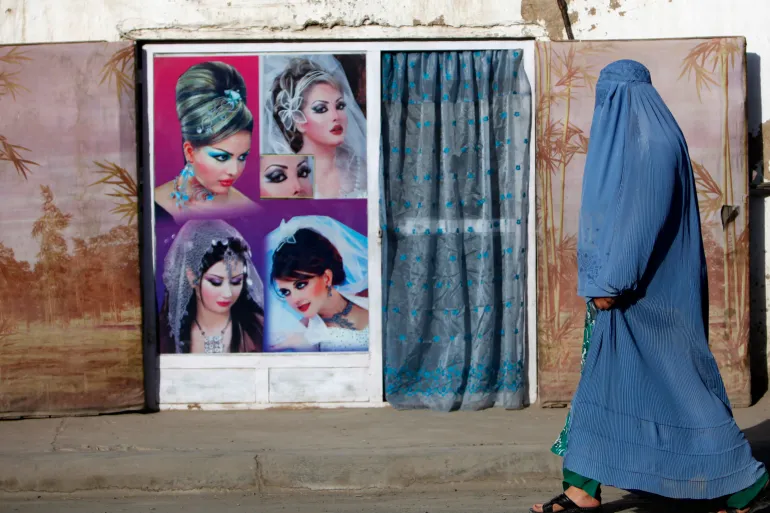A new Taliban edict gives hidden salons one month to shut down, erasing a crucial source of income and community for thousands of women already banned from work and education.
In the dusty, winding alleys of Kabul, behind high mud walls and locked gates, a hidden world operates in silence and fear. Here, in a small room with a cracked mirror and the strong smell of hair dye, Minagul works. Her hands move with astonishing speed and professional skill, braiding and styling another woman’s hair. A sliver of light from a single, concealed window is the only illumination in this secret beauty salon. The distant sound of a motorcycle engine freezes everyone in place; breaths are held. Fear is a permanent guest.
This is not a scene from a thriller movie; it is the daily reality for thousands of women in Taliban-ruled Afghanistan. Now, these crucial hidden refuges face a new, severe threat. The Taliban have issued a new directive to local leaders, giving these salons a one-month deadline to shut down permanently—or face arrest and unknown punishment.
This latest crackdown is the next chapter in a systematic campaign of oppression. In 2023, the Taliban’s forced closure of over 12,000 formal beauty salons stole livelihoods from an estimated 50,000 female beauticians, plunging them into poverty and despair. Many of these women are family breadwinners, and this profession was their sole source of income. Now, the Taliban aim to snuff out the last breath of this trade.
But for women like Minagul, surrender is not an option. “If I don’t do this work, my children will go hungry,” she says, her eyes tired but determined as she looks into the mirror. “The fear is always there, but the sound of my children’s hungry stomachs is louder than my fear of the Taliban.” She and her colleagues operate like silent partisans, using encrypted messaging apps and secret referral networks to contact clients. Each customer can only find these safe houses through a trusted introduction.
These small salons are far more than places for makeup. They have become vital safe havens—a rare women-only space where women can breathe freely for a few minutes, share their burdens, and see in the mirror a reflection of themselves that the ruling regime is trying to erase.
The Taliban label these places “centers of corruption” that violate Sharia law. However, international observers and human rights organizations see this move as part of the regime’s broader policy of gender apartheid, whose ultimate goal is the complete eradication of women from public life and their confinement to their homes. After banning them from work, education, and free movement, the Taliban are now depriving them of even the smallest familiar and female-centric spaces.
The countdown clock is now ticking.
One month; thirty days. Afghanistan’s female beauticians are trapped between hunger and fear. Whatever decision they make will have heavy consequences. The story of Mina and thousands of women like her is one of quiet resistance against a system that wants to make them invisible. In silence, with a makeup brush and lipstick, they continue to paint a portrait of resilience on each other’s faces.
Guardian


